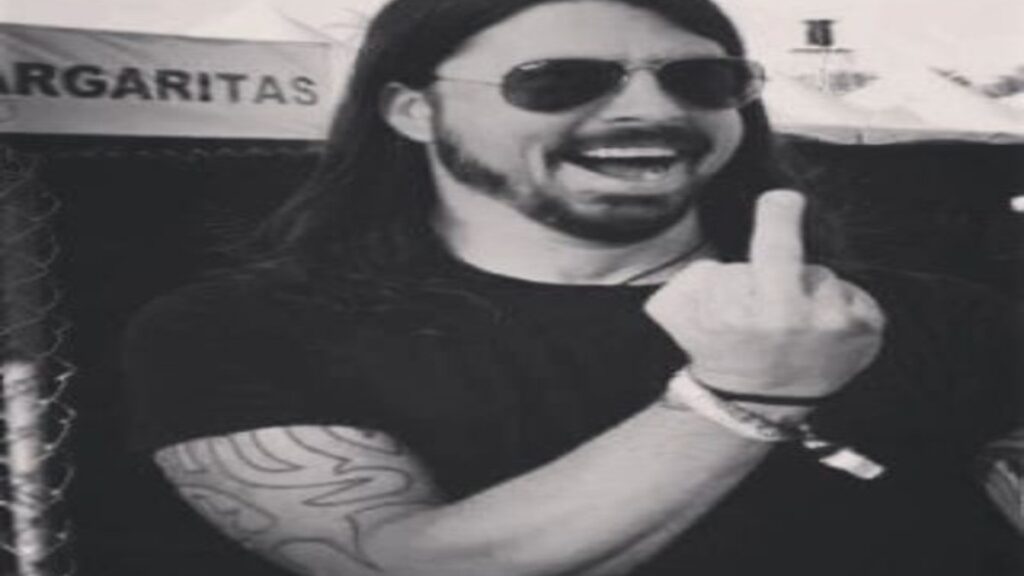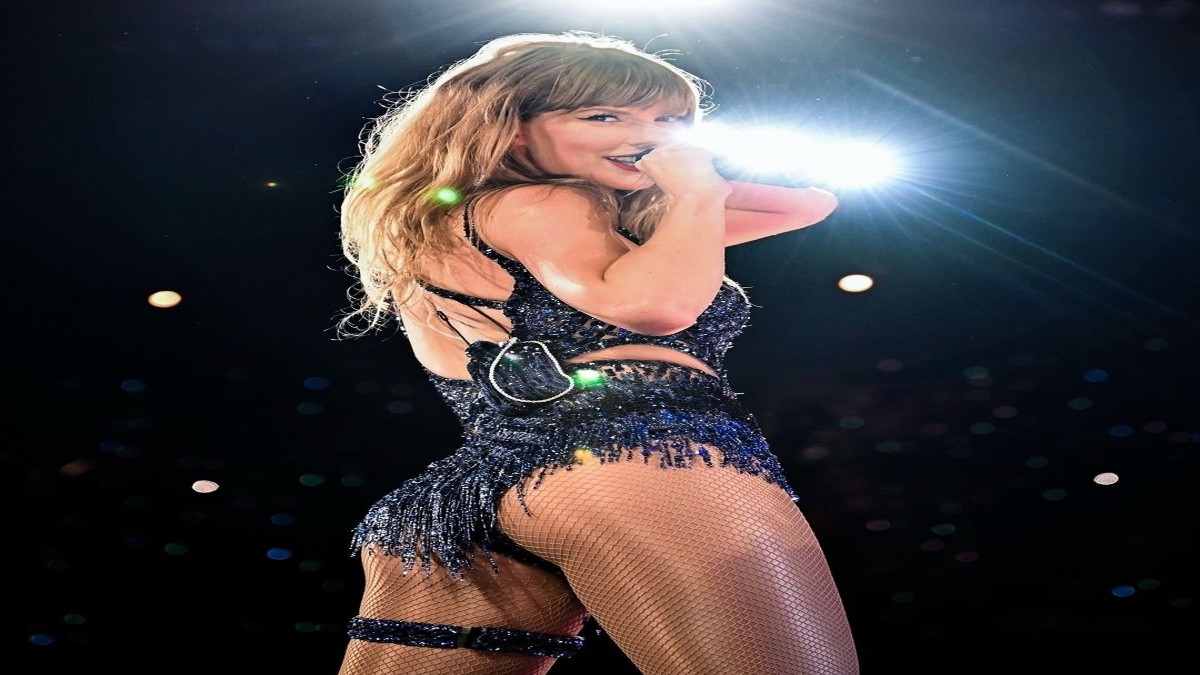David Grohl ‘Mocks’ Taylor Swift
Introduction
David Grohl ‘Mocks’ Taylor Swift, In the age of social media and instant news, the line between genuine criticism and playful banter can often blur, leading to a whirlwind of reactions and interpretations. This was epitomized in a recent incident involving David Grohl, the iconic frontman of Foo Fighters, and Taylor Swift, one of the biggest pop stars of our generation.
During a Foo Fighters concert, Grohl made a comment about Swift’s live performances that quickly spread across the internet, causing a stir among Swift’s ardent fanbase, known as Swifties. While many of Grohl’s fans dismissed the uproar as exaggerated and sensationalized clickbait, the incident offers a fascinating glimpse into the dynamics of fan culture, media representation, and the power of public figures’ words.
The Incident
During a Foo Fighters concert in early June 2024, David Grohl made a remark that was interpreted by some as mocking Taylor Swift’s live performances. The moment was captured on several smartphones and quickly uploaded to various social media platforms. In the video, Grohl was seen addressing the crowd, making a playful jab that, in isolation, seemed to criticize Swift’s stage presence and performance style.
Context and Nuance
To fully understand the context of Grohl’s comment, it’s essential to consider his reputation for humor and candidness. Known for his down-to-earth personality and sense of humor, Grohl often incorporates lighthearted banter into his performances. Many of his fans argue that the comment was meant in jest, aligning with his usual stage persona rather than a serious critique of Swift’s abilities as a performer.
Moreover, Grohl and Swift have shared a history of mutual respect and admiration. In previous interviews, Grohl has spoken highly of Swift, praising her songwriting talent and influence in the music industry. This background adds complexity to the interpretation of his comment, suggesting that it might have been taken out of context or blown out of proportion.
Swifties’ Reaction
Swift’s fanbase, known for their passionate defense of the pop star, quickly took to social media to express their displeasure. Hashtags such as #RespectTaylor and #GrohlGate began trending on Twitter, with fans decrying what they perceived as an unprovoked attack on Swift. Some Swifties called for an apology from Grohl, arguing that his comments were unprofessional and disrespectful.
The reaction from Swifties highlights the intense loyalty and protectiveness that fan communities often exhibit. For many fans, Swift’s music and persona hold significant personal meaning, and any perceived slight against her is seen as a direct affront. This emotional investment can sometimes lead to strong reactions, especially in the fast-paced environment of social media where nuanced interpretations are often lost.
Media Sensationalism
As the incident gained traction online, several media outlets picked up the story, often using sensational headlines to attract readers. Phrases like “David Grohl Disses Taylor Swift” and “Foo Fighters Frontman Attacks Pop Queen” proliferated, fueling the controversy further. This kind of clickbait journalism thrives on conflict and drama, sometimes at the expense of accuracy and context.
Grohl’s fans were quick to call out what they saw as media manipulation, arguing that the coverage was designed to create outrage and drive traffic rather than provide a fair account of the event. They pointed out that Grohl’s comment, when seen in full context, was far less inflammatory than portrayed and accused the media of exploiting fan emotions for profit.

The Power of Words
Public figures like Grohl and Swift wield significant influence, and their words can have far-reaching consequences. Even a seemingly innocuous comment can spark widespread debate and controversy, especially when taken out of context. This incident underscores the importance of careful communication, particularly in the age of social media where statements can be rapidly disseminated and dissected.
For Grohl, this event serves as a reminder of the scrutiny that accompanies his status as a rock legend. While his fans may understand and appreciate his humor, broader audiences, including Swifties, might interpret his words differently. This dynamic creates a delicate balance between authenticity and the potential for misinterpretation.
Fan Culture and Loyalty
The strong reaction from Swifties is indicative of the broader phenomenon of fan culture in the digital age. Fans today have unprecedented access to their favorite artists and a powerful platform to voice their opinions. This connectivity fosters a deep sense of loyalty and community, but it can also lead to heightened sensitivity and quick mobilization against perceived threats.
Swifties, like many fan groups, are highly organized and vocal. Their ability to influence public discourse and media narratives is significant, as evidenced by the swift spread of hashtags and calls for action. This incident highlights the dual-edged nature of such fan loyalty, which can both support and protect artists while also creating intense pressure and scrutiny.
The Response from Grohl
In the days following the incident, Grohl addressed the controversy during a radio interview. He clarified that his comment was meant as a joke and expressed his respect for Swift as an artist. Grohl emphasized the importance of humor and context, urging fans and media to consider the broader picture before jumping to conclusions.
His response was well-received by many, who appreciated his candidness and willingness to address the situation directly. However, some Swifties remained unconvinced, feeling that an apology was still warranted. This division highlights the challenges public figures face in managing their image and relationships with diverse fan communities.
Broader Implications
The Grohl-Swift incident is more than just a fleeting controversy; it reflects broader trends in celebrity culture, media practices, and fan dynamics. It raises important questions about the role of humor in public discourse, the responsibilities of media outlets in shaping narratives, and the power of fan communities in influencing public perception.
In an era where information spreads rapidly and opinions are formed quickly, the potential for misunderstandings and conflicts is ever-present. Public figures must navigate this landscape carefully, balancing authenticity with sensitivity to diverse audiences. Meanwhile, media outlets and fans alike have a role to play in fostering a more nuanced and thoughtful dialogue.
Conclusion
The incident involving David Grohl’s comments about Taylor Swift’s live performances serves as a microcosm of the complexities of modern celebrity culture. It underscores the power of words, the influence of fan communities, and the role of media in shaping public narratives. As the dust settles, it offers a valuable opportunity for reflection on how we engage with and interpret the actions and words of public figures.
For Grohl, Swift, and their respective fanbases, this episode is a reminder of the importance of context, communication, and mutual respect. As fans, media, and artists continue to navigate the ever-evolving landscape of fame and fandom, incidents like these will undoubtedly shape the future of how we understand and relate to the stars we admire.


















Great post! I’m looking forward to reading more of your work.